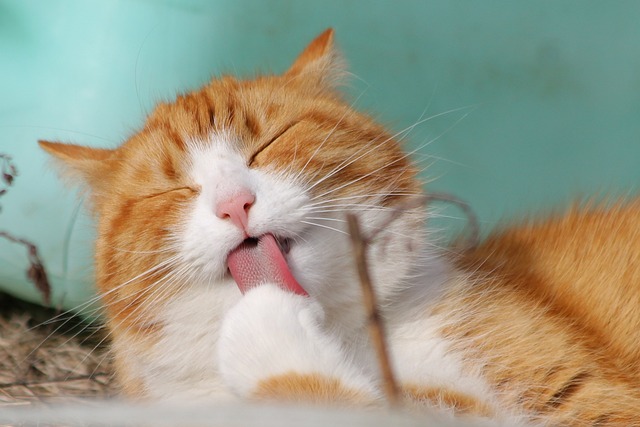
Is Your Cat Licking Its Paws Too Much? Here’s Why
Cats are known for their fastidious grooming habits. Watching your feline friend meticulously clean their paws is usually nothing to worry about—it’s part of being a cat! But if you’ve noticed your kitty licking its paws excessively, it could be a sign that something else is going on.
Here’s a closer look at what might be causing your cat to over-groom its paws and when it’s time to consult a vet.
1. Normal Grooming vs. Excessive Licking
First things first—cats spend 30-50% of their waking hours grooming. It’s natural and healthy behavior. But if you see your cat licking its paws constantly, to the point of redness, bald spots, or irritation, it’s time to dig deeper.
Watch for signs like limping, flinching, excessive licking after meals, or focused grooming on just one paw.
2. Allergies
One of the most common causes of paw licking is allergies. Cats can be allergic to:
- Certain foods (like beef, chicken, or dairy)
- Pollen, mold, or dust mites
- Flea bites or insect stings
- Chemicals in cleaning products or litter
Allergic reactions can cause itchiness, inflammation, or even infections in the paws and between the toes.
3. Skin Irritations or Infections
Fungal or bacterial infections, especially yeast infections, can make a cat’s paws itchy and uncomfortable. You might notice a musty smell, swelling, or scabs.
These issues often need veterinary treatment and may require antibiotics or antifungal medication.
4. Anxiety or Stress
Just like people bite their nails or fidget, cats may lick or over-groom when stressed. Changes in their environment—like a move, new pets, loud noises, or separation anxiety—can trigger compulsive grooming.
If your cat is licking its paws more when left alone or after stressful events, emotional factors could be the cause.
5. Pain or Injury
If your cat is focused on one paw, check for:
- Cuts, scrapes, or puncture wounds
- Splinters or thorns
- Ingrown claws or cracked pads
- Joint pain or arthritis
Cats often try to “heal” injuries by licking, but excessive licking can make things worse.
6. Parasites
Fleas, ticks, or mites can irritate the skin and cause itchiness that leads to over-grooming. Even if you don’t see fleas, your cat could be reacting to flea saliva from a single bite.
A vet-prescribed flea treatment may be necessary.
7. Dry Skin
Just like humans, cats can get dry, flaky skin—especially in winter or in homes with low humidity. Dryness can lead to itchy paws and increased licking.
Consider using a humidifier and consult your vet about feline-safe supplements like omega-3 fatty acids.
When to See the Vet
If your cat’s paw licking is:
- Persistent or getting worse
- Accompanied by redness, swelling, or hair loss
- Focused on just one paw
- Leading to sores or bleeding
…it’s time to schedule a vet visit. Your vet can rule out medical issues and guide you toward the best solution, whether that’s medication, dietary changes, or behavior modification.
Image by K L from Pixabay